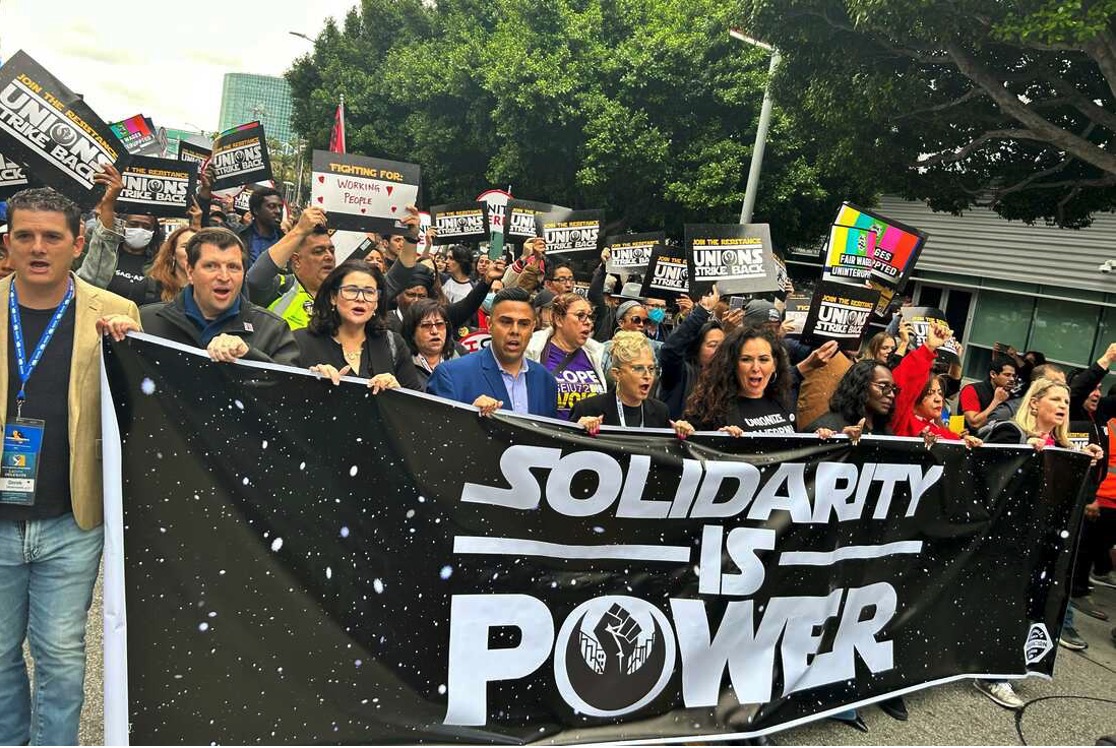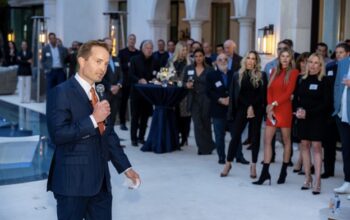The Marines will not take the vaccine for the virus. In Riverside 50% of the health professionals won’t take the vaccine, LAPD has more than 40% refusing to take the vaccines—now you have 6 people get blood clots from the vaccine—and government pulls it from the market. Yet the CDC reports 2249 people DIED from the vaccine, 104 reported cased of miscarriage—and vaccines are still being given.
Now we find that firefighters will not take the vaccine. What will it take for the FDA to stop the abuse of millions of people? Just a simple answer—what is the long term effect on women, children and the elderly if they take the vaccine? We already know the answer—the FDA does not have any idea. They are pushing untested drugs into us, hoping the placebo affect will stop the virus. Yet, thousands of those who have taken the vaccine ALSO got the virus after taking the vaccine.
When will the doctors and scientists take back the pandemic from the politicians?
Many Firefighters Are Still Declining The Vaccine As A Brutal Fire Season Looms

by Jacob Margolis, LA1st, 4/12/21
Back in the fall, Los Angeles County firefighter Mickey Juarez was sitting in his garage with his friend talking about COVID-19.
News about a potential vaccine had been ramping up nationally and Juarez was considering whether to get it. At his friend’s urging, they turned on a podcast.
“He just asked me to listen to what they had to say before I got the vaccine,” said Juarez.
“It was a guy speaking regarding the way the government works.”
When we spoke he couldn’t remember which show it was, but Juarez described the guy on the podcast as an “advocate for people’s rights,” who used the interview to question the safety of the vaccine and the government’s true intentions. It was enough to send him down an online rabbit hole searching for what he thought to be the little-spoken, unpopular truth.
He wondered if the virus was made in a lab, if the whole crisis was manufactured by the government and pharmaceutical companies. And he wondered if, with his preexisting lung condition, the vaccine would do more harm to him than good.
He was set on not getting the shots.
Juarez wasn’t the only firefighter consumed by conspiracy theories and worries. “You know, I get a lot of firefighters sending me YouTube videos from all over the place,” said Dr. Clayton Kazan, Los Angeles County Fire’s medical director.
“The ones that stand out are the concerns around infertility, that the vaccine causes lower sperm counts,” he said.
Side note: it doesn’t, though it’s possible that COVID-19 can lead to inflammation of the testes.
Last fall, L.A. County Fire and the UCLA Fielding School of Public Health surveyed the organization’s 4,900 employees and found that roughly 45% of them didn’t want to get the vaccine. That was similar to nationwide numbers from around that time.
A THREAT TO FIREFIGHTING RESOURCES
We’re in for a whopper of a fire season as California enters its second year of drought, and we’ll need as many firefighters as we can get. The more that opt out of the vaccine, the more that are vulnerable to getting sick, and the more that are likely to be out at any one time when the virus spreads through a station.
That’s what happened last year.
Over at Cal Fire Riverside, roughly 30% of firefighters were out because of COVID-19 during the December surge. Employees were forced to fill the empty shifts, some working for weeks at a time. Not only did they have to deal with a large number of sick patients, putting their own lives at risk, but they had to deal with the tail end of fire season as well.
That led to burnout, and noticeable depression, anxiety, and angst amongst employees, according to Gad Amith, Cal Fire Riverside’s emergency medical services battalion chief.
That’s a continued threat this year as well.
FIGHTING MISINFORMATION
L.A. County’s Kazan and his colleagues knew that if they wanted to convince their people to get protected they had to break through the misinformation.
They needed to be clear about what the science said and to push back against spurious claims, while keeping an open, non-judgemental dialogue with those who were willing to talk about their concerns.
“We were all over them from about the end of November on, about explaining the science, answering questions, doing live Q&A … and putting out videos and linking to things and trying to compete against the noise of some of these social media rabbit holes,” said Kazan.
Besides the barrage of information, they settled on one other idea as well.
If a firefighter wanted to refuse the vaccine, L.A. County Fire made it so they couldn’t just not show up, or casually check off a box online. The firefighters instead would have to leave the bubble of their fire house, drive to a vaccination site, and decline in person.
“If you’re sitting at a station with five people who are all kind of grumpy and don’t want to get it, it’s a lot easier to say no than when you have to show up to an area where you see your friends stepping up and taking it. And now you have a chance to ask your questions. And maybe you’ll just kind of roll your eyes and roll up your sleeve,” said Kazan.
That approach is “brilliant,” said Alison Buttenheim, who studies vaccine acceptance at the University of Pennsylvania School of Nursing.
“There’s at least two things going on there,” she said.
They’ve “reframed the default as everyone’s going to get vaccinated, and choosing to do something else actually requires additional effort. Now the easiest thing to do is just to show up and get vaccinated,” Buttenheim said.
And then there’s the added social pressure of having to publicly show your peers at the vaccination site that you’re doing something different from them.
“We not only don’t want to be different, but when we have a new decision … or a decision where we’re really info overloaded, one of the shortcuts we take is just to look around and see what everybody else is doing. That’s one of the ways we make it easier on ourselves to make a decision,” she said.
When asked if L.A. County Fire had considered all of the above when working up its strategy, Kazan laughed and asked, “So we stumbled upon genius?”
WAS THE EFFORT WORTH IT?
The approach seems to have worked across the department.
As of late March, Kazan estimates that about 70% of L.A. County’s firefighters have gotten the vaccine, much more than Orange County’s 53% or New York City’s 49%.
He’s quick to point out that other firefighting forces have tried similar moves and been less successful. It should be noted that vaccine hesitancy has been falling over time as trust in the vaccine has grown.
Some firefighting organizations aren’t tracking their vaccination rates, most notably Cal Fire, the largest firefighting force in the state that not only helms much of our wildland fire response but also acts as many cities’ local fire department.
“They’re not required to get it, so we don’t ask them if they got it because that’s a personal choice of their own,” said Cal Fire Battalion Chief Nick Schuler.
“I want to be clear,” he said. “I’m not saying that we have a large group that’s not vaccinated. I don’t know that to be true.”
During a conversation with Amith from Cal Fire Riverside, he estimated that fewer than half of his firefighters had opted in to getting the vaccine.
He was frustrated and said that he too had spent time speaking to firefighters about vaccine safety and the implications of an unvaccinated work force.
“I think, generally, some of our employees are distrustful of authority, they’re distrustful of government,” Amith said. “And they elicit their information from social media outlets like Facebook, and YouTube, and Twitter. And I think that some of what has been described to me by the employees is outright reckless.”
JUAREZ CHANGES HIS MIND
As for Juarez, the firefighter who said he’d never get vaccinated, he was actually among the first wave of people to get a shot in late December. It was one of Dr. Kazan’s videos that changed his mind.
It was a surprising about-face that Juarez said was a direct result of honest communication from someone he’d grown to trust. Juarez contracted Valley Fever a few years ago while on the job, and Kazan looked after him, checking in regularly even though he didn’t have to.
It wasn’t hearing Kazan talk about the potential side effects of the vaccine that fully convinced him, Juarez said. It was that the vaccine could potentially stop him from unwittingly transmitting the virus to his ailing father.
“Although I don’t agree with everything, I do trust what [Kazan] says,” he said.
Juarez is confident he made the right decision, because a week or so after he got his shot, he contracted COVID-19. His preexisting condition meant he could have gotten extremely sick and died, but instead he recovered. He believes the vaccine offered him some level of protection — and potentially saved his life.



